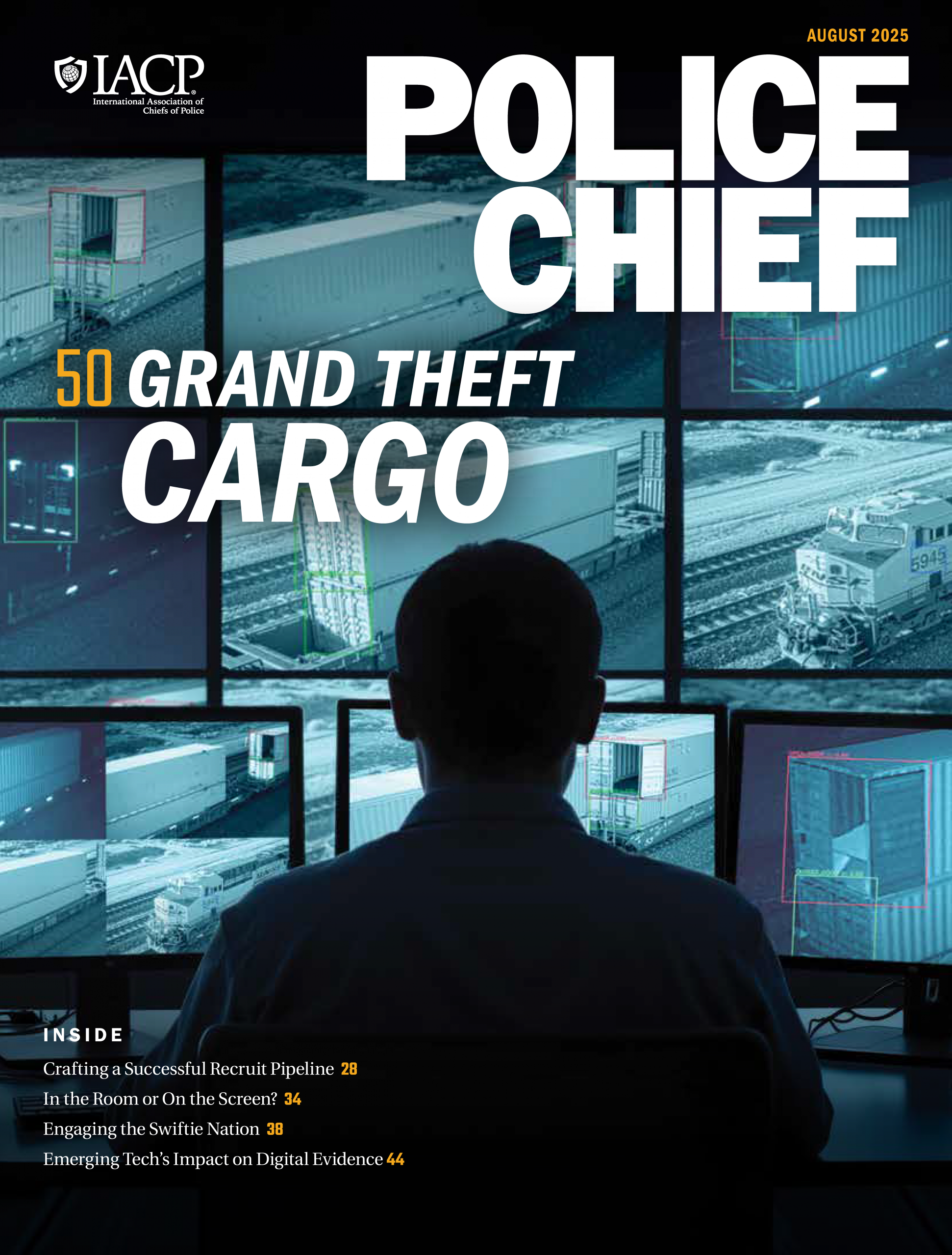Español Français Português عربى |

Law enforcement professionals around the world need to be aware of and responsive to global crimes and be able to swiftly and effectively respond in order to mitigate and minimize risk that can spiral out of control in minutes.
The challenges we encounter in the law enforcement profession are shared on a global level. While the types and severity of those problems may vary across different countries and communities, the issues we collectively face have no boundaries.
Police awareness, understanding, and cooperation in combating global crime are of the upmost importance. We must ensure that international criminals are not able to evade justice because law enforcement agencies in different nations do not communicate, cooperate, or share critical information effectively.
As emerging crime trends and some well-known crimes make clear, despite the geographic barriers, language hurdles, differences in customs, and variations in agency practices that may separate us, criminals have learned to quickly adapt to overcome these challenges, and we must do so as well. We need to combat these crimes in a unified manner in order to effectively use our resources and be timely in our response.
As time progresses and there are advancements in technology and telecommunications, criminals are becoming more sophisticated. Now criminals have the luxury of being able to commit crimes from the comfort of their homes and in remote locations, and this certainly worked in their favor during the COVID-19 pandemic. They can reroute communications from one system to another across the internet and conceal account identities and IP addresses. Fraudulent organizations can easily employ remote controls to commit transnational crimes and use illegal sites. As criminals become more creative with technology, identity-related crimes have developed as a concern for many agencies. When personal identification information is obtained by criminals, it can be abused to launder money, commit fraud, and facilitate illicit activities.
Also, although the demand for resources changes by country and community, environmental crimes are of concern to all law enforcement. Environmental crimes pose serious threats to our lives, the lives of future generations, and the planet. Our borders are unable to restrict these types of crimes, which include illegal mining of gold and diamonds, illegal wildlife trade, illegal logging and mining, and the dumping of hazardous waste, among many other offenses. The smuggling routes for such crimes are often additionally used to traffic weapons, illegal drugs, and people. Unlike drugs and other illicit goods, natural resources are finite and cannot be replenished in a laboratory. As such, there is a sense of urgency to combat environmental crimes before it is too late.
As mentioned, trafficking of people is also a global concern. Human trafficking, which includes sexual exploitation and forced labor, most commonly affects women and girls. Traffickers often offer promises of education and employment opportunities to coerce their victims into exploitative circumstances.
Physical and sexual abuse, emotional manipulation, blackmail, and confiscation of official documents are common tactics used by traffickers to control their victims. Exploitation can take place in a victim’s home country, during migration, or in a foreign country.
“The issues we collectively face have no boundaries.”
The COVID-19 pandemic has made borders less porous. As traditional drug markets may have seen a decline, organized crime groups diversified, trafficking personal protective equipment (PPE), pharmaceutical products, and COVID-19 vaccines. Shrinking economies and high unemployment created a demand for cheaper labor, creating ideal conditions for human trafficking. Research labs and hospitals experienced cyber attacks, and, sadly, the world knows all too well that cybercrime is a side effect of disasters. In today’s world, biological viruses give rise to digital viruses.
Global crimes are often multifaceted and interconnected, and the perpetrators have the ability to increase their network at lightning speed. The vastness of these crimes is destroying our planet, disrupting peace, and causing many innocent victims to fall prey to the criminals’ tactics.

In order to combat these crimes, we must continue to evolve our investigative tactics, while still maintaining public trust, safeguarding our communities, and dismantling these sophisticated criminal organizations and networks. We need to increase our cooperation and communication to confront and combat those who carry out such crimes. As we develop, share, and collaborate on the most promising practices that aid and enhance investigative protocols, we also need to be mindful of our responsibility to protect privacy and rights in a manner that is consistent with the expectations of our communities.
With your continued dedication to your communities and those around the world, we can work together to drastically reduce corruption, money laundering, identity fraud, environmental crimes, human trafficking, and cybercrime, among the many other crimes that plague the globe.
Be well, stay safe, and as always, thank you for all you do each and every day.
Please cite as
Cynthia E. Renaud, “The Globalization of Crime,” President’s Message, Police Chief 88, no. 6 (June 2021): 6–7.


